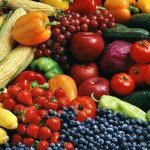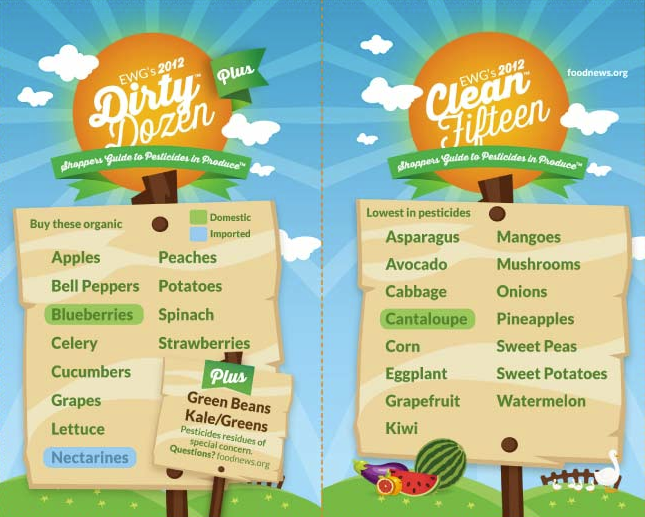 It’s no secret that our food contains pesticides that are really bad for our body. And it’s also no secret that many patients and families are flat out broke from trying to take care of medical expenses.
It’s no secret that our food contains pesticides that are really bad for our body. And it’s also no secret that many patients and families are flat out broke from trying to take care of medical expenses.
But when you are trying to optimize your detox and methylation, the food you eat is important. The U.S. Department of Agriculture found at least 1 pesticide of the 68 samples of conventional produce analyzed.
Pesticides cause brain and nervous system toxicity, cancer, hormone disruption, skin, eye, lung irritation, amongst other things. They are toxic by design.
But there are steps you can take to limit your exposure on a tight budget. The website ewg.com has a guide called EWG’s 2012 Shopper’s Guide to Pesticides in Produce™ that lists the “dirty dozen” conventional fruits and vegetables. Buy these Organic to limit exposure to harmful pesticides.
Here are the fruits and vegetables that made the “dirty dozen” list
- Apples
- Celery
- Sweet bell peppers
- Peaches
- Strawberries
- Nectarines – imported
- Grapes
- Spinach
- Lettuce
- Cucumbers
- Blueberries – domestic
- Potatoes
There are two more vegetables that are actually of more concern. The extra dirty produce. It includes some vegetables you might find surprising.
- Green beans
- Kale/Greens
Thought that conventional Kale you were eating was healthy? Well, it may have been loaded with more pesticides than any other item in your produce section. It is very important to buy these super dirty items as organic.
They also provided a “Clean 15” list. These include:
- Onions
- Sweet Corn
- Pineapples
- Avocado
- Cabbage
- Sweet peas
- Asparagus
- Mangoes
- Eggplant
- Kiwi
- Cantaloupe – domestic
- Sweet potatoes
- Grapefruit
- Watermelon
- Mushrooms
It’s important to note that Genetically Modified (GMO) Sweet Corn is not labeled in US stores. GMO corn is usually used for animal feed and biofuels. But some GMO corn is grown for human consumption. There is some concern about the toxicity of GMO corn itself as well as the toxicity of the pesticides/herbicides they use on it. And since so many with illnesses such as Autism and ME/CFS seem to have a corn allergy, it might be something that should be avoided anyway.
Here’s a guide you can print use while shopping

Just print it, fold it, put it in your wallet, and you are ready to go.
If you have the money, it’s probably best to buy all organic. But if you don’t have the money, these are some practical tips. It’s a bit harder to save money when buying packaged food. Much of it is very processed, so look for the USDA Organic seal and/or the Non-GMO Project Verified seal to further limit exposure to toxins.
There is an app you can put on your phone that does this as well, I imagine it is more up to date than this article….
https://itunes.apple.com/us/app/dirty-dozen/id312336368?mt=8
Has the Dirty Dozen been updated since 2012?
Quite informative. Sent it to my husband, family and friends.
Thank you so much
DebRa